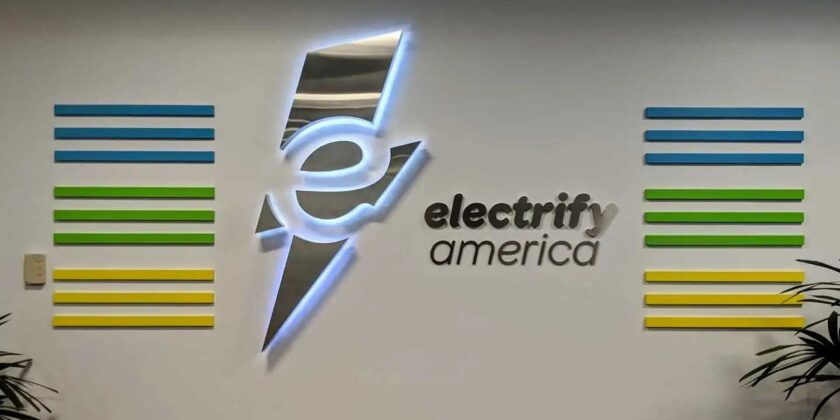Electrify America sent out an email this week to inform its customers that significant billing changes will go into effect across the network on August 17th of this year. We reached out to the company to get clarity on some of the new rules before reporting on this important topic.
Whether you are an occasional user or a regular customer, if you use the Electrify America network, you’re going to want to understand these very important changes going into effect in less than a month.
Hummer EV charging at an Electrify America 350 kW charging station
New pricing rules
In addition to updating its terms of use and arbitration rules, there are three significant changes that will affect how much you pay to use the ELectrify America network once the new rules take effect.
Three main pricing changes:
- The monthly fee to be a Pass+ subscriber is going up from $4.00 to $7.00. That translates to an additional $36 per year ($84 per year compared to the previous $48/year), Pass+ members will still get a 25% discount on the per-kWh or per-minute price, depending on what state they are charging in.
- Electrify America is transitioning from set pricing across the country to a station-specific pricing model that is subject to change. The Electrify America app will show the station-specific prices, the company is urging its members to always check the station for pricing when they arrive because it’s possible the price listed in the app may be incorrect.
- Electrify America will begin to charge idle fees at most of its locations nationwide. After a ten-minute grace period, the customer will be billed $0.40 per minute until they unplug the vehicle from the charger.
Porche Taycan charging up on an Electrify America DC fast charger
The monthly fee for Pass+ members shouldn’t be enough to convince regular users from continuing with the subscription. However, if you’re an occasional user and didn’t mind the $48 annual fee to get a 25% discount when you did use the network, you may do the math and think twice about it. I still think if you use the network at least once per month, you’ll most likely recover at least $7.00 from the 25% savings and continue to be in the black after paying the monthly fee.
The dynamic, station-specific pricing is probably the biggest change. Electrify America will no longer have consistent pricing across its network. Instead, every station will have its pricing set according to what the network pays in that area – with a margin for profit built in. Those who’ve followed this industry saw this change happening at some point because it was, in my opinion, inevitable.
That’s because the cost of electricity varies greatly across the country. It doesn’t make sense for Electrify America, or any charging network, to charge the same in one area as they do in another when the cost of electricity can be four times greater there. Tesla uses site specific charging also, and it even varies the cost to use its Superchargers based on the time of day you use them.
The final pricing change is one that I am very glad the network is doing – idle fees. Once an EV stops charging it needs to be removed from the charger so others and use the plug. However, if there’s no penalty for not following the rules, then there will always be abuse and that’s what’s been going on. I’ve seen it so many times. A car finished charging and is sitting idle while the owner is nowhere to be found.
The connector is locked to the vehicle so nobody else can use the station. Electrify America always threatened to charge idle fees, but didn’t actually charge people for idle vehicle time. Now, the company says it will begin charging customers $0.40 per minute if their vehicle remains plugged in after it has finished charging – once a 10-minute grace period has expired. Tesla charges $0.50 per minute for idling, and if the entire site is in use, the penalty doubles to $1.00 per minute. Personally, I’d be fine with Electrify America adopting that 2X penalty when the site was 100% full also.
So check out the video and let us know your thoughts on the new pricing rules in the comment section below.
Source: State Of Charge
Source: Read Full Article

